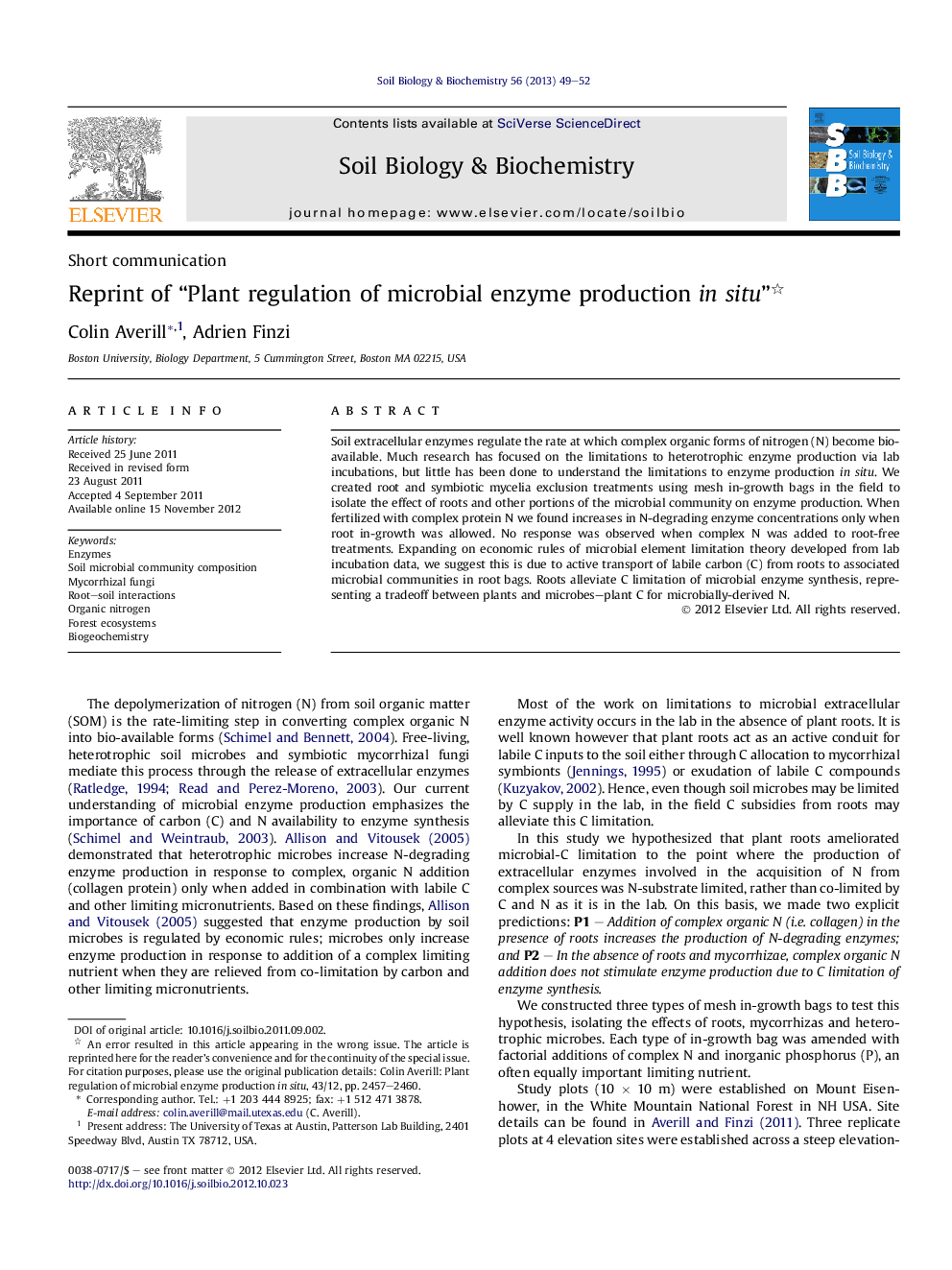| Article ID | Journal | Published Year | Pages | File Type |
|---|---|---|---|---|
| 2024850 | Soil Biology and Biochemistry | 2013 | 4 Pages |
Soil extracellular enzymes regulate the rate at which complex organic forms of nitrogen (N) become bio-available. Much research has focused on the limitations to heterotrophic enzyme production via lab incubations, but little has been done to understand the limitations to enzyme production in situ. We created root and symbiotic mycelia exclusion treatments using mesh in-growth bags in the field to isolate the effect of roots and other portions of the microbial community on enzyme production. When fertilized with complex protein N we found increases in N-degrading enzyme concentrations only when root in-growth was allowed. No response was observed when complex N was added to root-free treatments. Expanding on economic rules of microbial element limitation theory developed from lab incubation data, we suggest this is due to active transport of labile carbon (C) from roots to associated microbial communities in root bags. Roots alleviate C limitation of microbial enzyme synthesis, representing a tradeoff between plants and microbes–plant C for microbially-derived N.
► Enzyme production by microbes is co-limited by carbon and substrate in the lab. ► We tested if this finding holds in field settings, with roots as the carbon source. ► Mesh root exclusion bags were placed in the field and fertilized with protein. ► Enzymatic response to protein addition was only observed in the presence of roots. ► We suggest root C allocation relieves C limitation of microbial enzyme synthesis.
